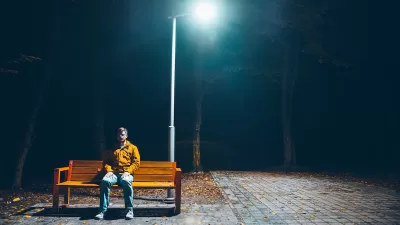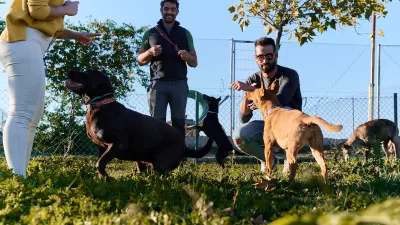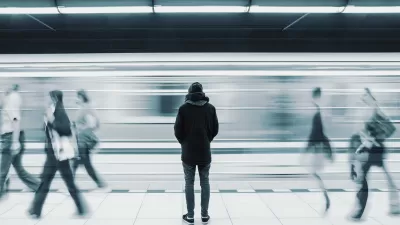A new advisory from the Surgeon General declares that there is an epidemic of loneliness in the United States and that lacking connection can increase the risk for premature death to levels comparable to smoking 15 cigarettes a day.

The U.S. Surgeon General has just released a report titled “Our Epidemic of Loneliness and Isolation,” which finds that even before the COVID-19 pandemic, half of U.S. adults reported experiencing measurable levels of loneliness. As NPR reports in this article, the advisory warns that the physical consequences of poor connection can be devastating, including a 29 percent elevated risk of heart disease; a 32 percent increased risk of stroke; and a 50 percent increased risk of developing dementia for older adults.
Across age groups, people are spending less time with each other in person than two decades ago. The advisory reported that this was most pronounced in young people aged 15-24 who had 70 percent less social interaction with their friends.
The advisory outlines the framework for a new national strategy which is based on the following six foundational pillars:
- Strengthening social infrastructure, which includes things like parks and libraries as well as public programs.
- Enacting pro-connection public policies at every level of government, such as accessible public transportation or paid family leave.
- Mobilizing the health sector to address the medical needs that stem from loneliness.
- Reforming digital environments to critically evaluate our relationship with technology.
- Deepening our knowledge through more robust research into the issue.
- Cultivating a culture of connection.
For more information, please read the source article and review the full advisory.
FULL STORY: America has a loneliness epidemic. Here are 6 steps to address it

Maui's Vacation Rental Debate Turns Ugly
Verbal attacks, misinformation campaigns and fistfights plague a high-stakes debate to convert thousands of vacation rentals into long-term housing.

Planetizen Federal Action Tracker
A weekly monitor of how Trump’s orders and actions are impacting planners and planning in America.

San Francisco Suspends Traffic Calming Amidst Record Deaths
Citing “a challenging fiscal landscape,” the city will cease the program on the heels of 42 traffic deaths, including 24 pedestrians.

Adaptive Reuse Will Create Housing in a Suburban Texas Strip Mall
A developer is reimagining a strip mall property as a mixed-use complex with housing and retail.

Study: Anti-Homelessness Laws Don’t Work
Research shows that punitive measures that criminalized unhoused people don’t help reduce homelessness.

In U.S., Urban Gondolas Face Uphill Battle
Cities in Latin America and Europe have embraced aerial transitways — AKA gondolas — as sustainable, convenient urban transport, especially in tricky geographies. American cities have yet to catch up.
Urban Design for Planners 1: Software Tools
This six-course series explores essential urban design concepts using open source software and equips planners with the tools they need to participate fully in the urban design process.
Planning for Universal Design
Learn the tools for implementing Universal Design in planning regulations.
Heyer Gruel & Associates PA
JM Goldson LLC
Custer County Colorado
City of Camden Redevelopment Agency
City of Astoria
Transportation Research & Education Center (TREC) at Portland State University
Jefferson Parish Government
Camden Redevelopment Agency
City of Claremont





























